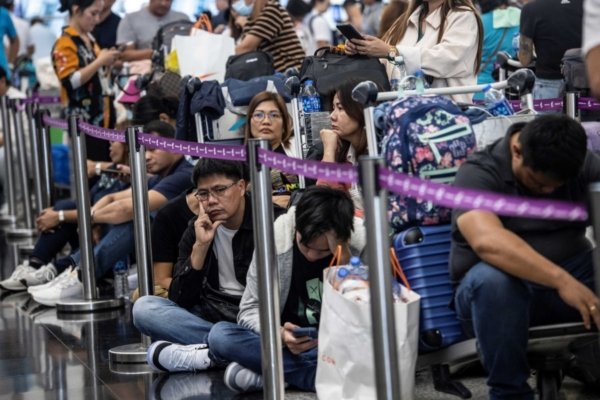On July 19, 2024, a technical malfunction in the Microsoft Windows operating system caused a widespread outage, affecting the operations of many airlines, banks, media organizations, and businesses globally. The culprit was attributed to cybersecurity software. In China, a large number of internet users posted messages thanking Microsoft for allowing them to take an early holiday, which gained attention across social media platforms.
During the early hours of July 19 in the U.S. Eastern Time, some applications and services under Microsoft experienced access delays, partial functionality, or were completely inaccessible.
According to reports by Reuters, this global outage disrupted operations in various industries worldwide, from airports in Spain, airlines in the U.S., to media and banks in Australia. The governments of Australia, New Zealand, and several U.S. states also encountered issues.
CrowdStrike, a cybersecurity company based in Austin, Texas, admitted that the incident was caused by a software update they had issued. CEO George Kurtz stated that the problem arose from a flaw during the “content update” for Windows devices, which has since been identified, isolated, and resolved.
Public information indicates that the Blue Screen of Death (BSOD) is a screen image displayed by the Windows operating system when it cannot recover from a system error, usually accompanied by error codes and messages. The appearance of BSOD is to protect the computer from further damage.
The Microsoft outage also had an impact in China. Numerous internet users on Weibo, a social media platform, shared screenshots of blue screens. On the Weibo trending list on the afternoon of July 19, terms such as “Microsoft Blue Screen,” “Thank you Microsoft for the early holiday,” “Microsoft Cloud Services,” and “Microsoft service interruption leading to grounding of American flights” were among the top trends.
Users posted images of blue screens with comments like: “If you’re seeing this on your Windows computer… you are not alone… everyone around the world is experiencing it today.”
Some users mentioned their laptops crashing, restarting 20 times in the past 40 minutes.
Others expressed gratitude to Microsoft for allowing them to leave work early. They joked about not needing to work anymore due to the Microsoft outage, creating a lighthearted atmosphere online.
Many netizens who did not experience any issues with the Microsoft system expressed surprise, humorously questioning why they didn’t get a blue screen too.
The reaction of mainland Chinese netizens to the Microsoft outage has sparked discussion. Various media outlets including Securities Times, Guangming Daily, Sing Tao Daily, and Observer reported on the posts from netizens thanking Microsoft for the early break.
The incident involving the Microsoft outage eliciting thanks from many Chinese workers for the unexpected time off highlights the intense competition and economic challenges faced by individuals in China. The situation reflects the prevailing trend of overwork and fierce competition within various industries under the Chinese Communist Party’s governance.
As per previous reports from BBC, individuals like Sophie, a 29-year-old employee at a top Chinese internet company, face the common practice of overwork, known as the “996” schedule, along with internal competition within the company. This scenario is not unique to her, as the culture of overwork extends to colleagues and even upper management.
Oxford University social anthropologist Xiang Biao noted the strong connection between the concept of intense competition and the phenomenon of “inward folding” in China. Young people constantly feel pressured by competition, fearing falling behind, being eliminated, or sidelined if they do not strive and compete relentlessly, creating a cycle of stagnation.
The Microsoft outage primarily affected enterprises, the tourism industry, banks, airports, and other public facilities. In recent years, the Chinese government has been attempting to replace foreign hardware and systems with domestic alternatives, raising concerns across various sectors.
This incident may prompt the Chinese government to reinforce its strategy of striving for self-sufficiency in technology. Concerns in Beijing include the risk of relying on Western systems in a hypothetical conflict scenario, where deliberate disruptions by companies like Microsoft could paralyze various systems essential for functioning.
In light of China’s military provocations and aggressive diplomatic stance in regions like the South China Sea, Taiwan Strait, and East China Sea, worsening relations with the U.S. and its allies have led to comprehensive containment in trade, economy, diplomacy, technology, and finance. Analysts predict that a series of misjudgments and erroneous decisions by the Chinese government could lead to its downfall.
The repercussions of the Microsoft outage and the broader geopolitical implications underscore the complex interplay between technology, competition, governance, and international relations.

